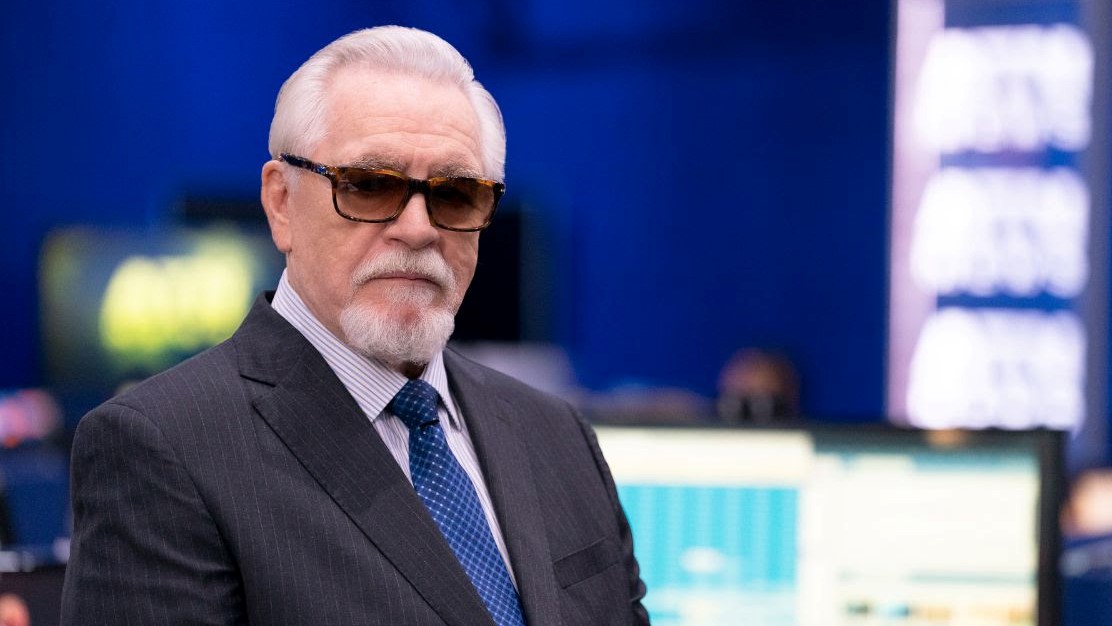
The smarter way to stay on top of the streaming and OTT industry. Sign up below.
You are now subscribed
Your newsletter sign-up was successful
Last Friday morning, the New York Times had four articles about Succession above the fold on its homepage. The op-ed section now contains at least three more, and new ones seem to crop up daily.

Not to be outdone, New York magazine has entire columns devoted to each of the main characters. And they are not alone.
Yet Succession is not a ratings hit. Far from it. Primetime network series like Young Sheldon and Fire Country routinely pull in millions more viewers each week.
Also read: ‘Succession’ Finale Draws 2.9 Million Viewers, a 68% Uptick Over Season 3's Wrap-Up
So what to make of the media’s obsession with Succession and what it tells us about the current state of the television industry.
Let’s start with the obvious: The media loves stories about the media and the fact that Succession is allegedly a roman à clef about the Murdoch family only adds to the appeal.
But that’s just the obvious.
The smarter way to stay on top of the streaming and OTT industry. Sign up below.
On a macro level, the story is about the death of the midcentury monoculture that defined America and is why the series finale of Seinfeld was watched by 76 million viewers and the series finale of Succession by just 2.9 million.
Because that’s really the thing -- we are all consuming media in our own bubbles now, and I can all but guarantee you that the vast majority of people who watched Succession have never heard of Fire Country.
And vice versa.
Or they’ve heard of it but didn’t see the appeal of it. Of a series whose characters were all unlikable and where the humor was often predicated on being privy to a certain world view, a certain type of class knowledge that people who have that class knowledge are often blissfully unaware they possess.
Which was, of course, one of the underlying jokes of Succession, which makes it all so very meta.
Then there’s the creative angle.
Succession will likely have far, far more of an impact on future TV series than either Young Sheldon or Fire Country. Because everyone will want the next Succession. Not because it made anyone gobs of money. But because it is a show that is popular with the type of people who make decisions about which television shows get produced. The fact that it is arguably an excellent show, well plotted, well paced with strong characters and a strong POV, being somewhat secondary.
Which means it will now be easier for HBO to recruit actors, writers and producers because they have proven they are still Ground Zero for the sort of buzzed about high profile series that high profile actors, writers, show runners and directors want to make.
That said, the creative community -- including the striking writers when they are no longer on strike -- will ultimately have to weigh the prestige of working on a high-profile series against the reality that, at best, the series will have ten episodes a year.
And that a series like Succession with 40 total episodes is unlikely to fetch the princely sums in syndication that a Young Sheldon, with its 175 episodes and counting will. Or that Young Sheldon’s seven 25-episode seasons are the closest thing you can find to full-time employment in the television industry.
So there’s all that and it’s not really an easy decision, much as you might argue that anyone who worked on Succession will no longer need to worry about finding work.
So there’s that too.
Then there’s the HBO angle.
As in how much did Succession help HBO, especially in its latest incarnation as Max?
You can argue that it helped with retention -- that all that buzz helped in keeping a certain type of viewer on board. It was so, at least, until the season was over, that is, because why pay $16/month for something you’re not watching all summer?
And while most of the people who watched Succession were likely already HBO subscribers, at least at some point (the show certainly hit their sweet spot) the fact is that most of the other subscription streaming services are making HBO-like series now too and the knowledge that, despite all the changes in ownership, HBO is still HBO is not a bad thing. (And haters aside, it’s not as if any of those people are going to stop subscribing because WBD changed the name to Max.)
Then there’s the flip side, which can best be summed up by a comment from an anonymous agent that made the rounds a few months back, something to the effect that Netflix needs to stop making “all those snobby shows that no one watches.”
Because from the other side of the divide, that is exactly what Succession is, and if WBD’s goal is to attract those viewers to Max, Succession probably isn’t helping.
That’s assuming they even know about it, and in our new splintered media ecosystem there’s a very good chance that they don’t. The red state/mass market media they consume is not even aware of it, and it’s just another 10-episode streaming series that neither they nor anyone they know has ever watched.
Which brings us to the future value of Succession.
The buzz around the show will likely help draw in new viewers for the next few years -- people who missed it the first time around and want to catch up, people for whom its presence, along with White Lotus, might help tip the scale enough to hit “subscribe.”
But it is only 40 episodes.
And it is not the type of show you would ever describe as “comfort food TV.”
Which is notable because the series that have found whole new audiences in syndication have not been prestige TV -- there’s not a whole generation of middle schoolers binge-watching The Sopranos. Rather, the rediscovery has been around shows like Grey’s Anatomy, Friends and The Office, shows where you can get to know the characters as if they were old friends and follow them in hundreds of episodes over the course of a decade.
Shows like Young Sheldon.
Alan Wolk is the co-founder and lead analyst for media consultancy TV[R]EV
